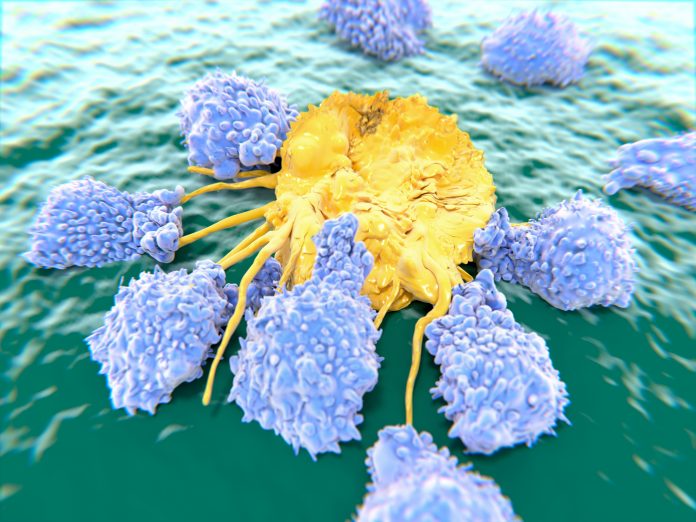
UCLA researchers have found that female mouse and human natural killer (NK) cells have an extra copy of X chromosome-linked gene UTX. This gene acts as an epigenetic regulator to boost NK cell anti-viral function, while repressing NK cell numbers.
“This implicates UTX as a critical molecular determinant of sex differences in NK cells,” said the study’s lead author Mandy Cheng, graduate student in molecular biology at UCLA.
The findings also suggest that, “Weighing factors that define patient subsets with different immune responses will allow us to move past a ‘one-size-fits-all’ therapeutic approach to a precision medicine paradigm,” the researchers write.
The team’s study was published this week in Nature.
Viral infection outcomes are sex biased, with males generally more susceptible than females. Paradoxically, the numbers of antiviral NK cells are increased in males. These researchers hypothesized that the reason for this disparity lay in an epigenetic regulator that boosts the activity of NK cells, which are specialized anti-viral immune cells.
The team found that lower UTX expression in male NK cells contributes to increased numbers but lower functionality. They note that UTX is required for controlling NK cell fitness, modulating accessibility of TF binding motifs, increasing chromatin accessibility at effector gene loci, and making NK cells capable of rapid response to viral infection.
“While it is well-known that males have more NK cells compared to females, we did not understand why the increased number of NK cells was not more protective during viral infections. It turns out that females have more UTX in their NK cells than do males, which allows them to fight viral infections more efficiently,” said co-senior author Maureen Su, professor of microbiology immunology and molecular genetics, and of pediatrics, at the David Geffen School of Medicine at UCLA.
The researchers noted that this held true whether or not the mice had gonads, indicating that the observed trait was not linked to hormones. Furthermore, female mice with lower UTX expression had more NK cells that were not as capable of controlling viral infection.
UTX deficiency is associated with Kabuki syndrome and Turner syndrome, both of which are associated with immune dysregulation and increased infections. In addition, recent studies have linked NK cell dysfunction to severe COVID-19 disease. This team’s findings suggest UTX deficiency in human NK cells may contribute to decreased viral immunosurveillance.
Further, understanding sex differences in NK cell function could help incorporate sex as a biological factor in treatment decisions. In males with severe viral illness, for instance, enhancing NK cell UTX activity may provide therapeutic benefit.
The team writes that they expect these insights, “Will be important not only in the setting of viral infections, but also in other infections and cancer, where NK cells also play an important role. These findings may also have important implications for adoptive cellular therapies, in which NK cells are the subject of intense interest.”
“Given the recent excitement with using NK cells in the clinic, we will need to incorporate sex as a biological factor in treatment decisions and immunotherapy design,” said co-senior author Tim O’Sullivan, assistant professor of microbiology, immunology and molecular genetics at the Geffen School.











